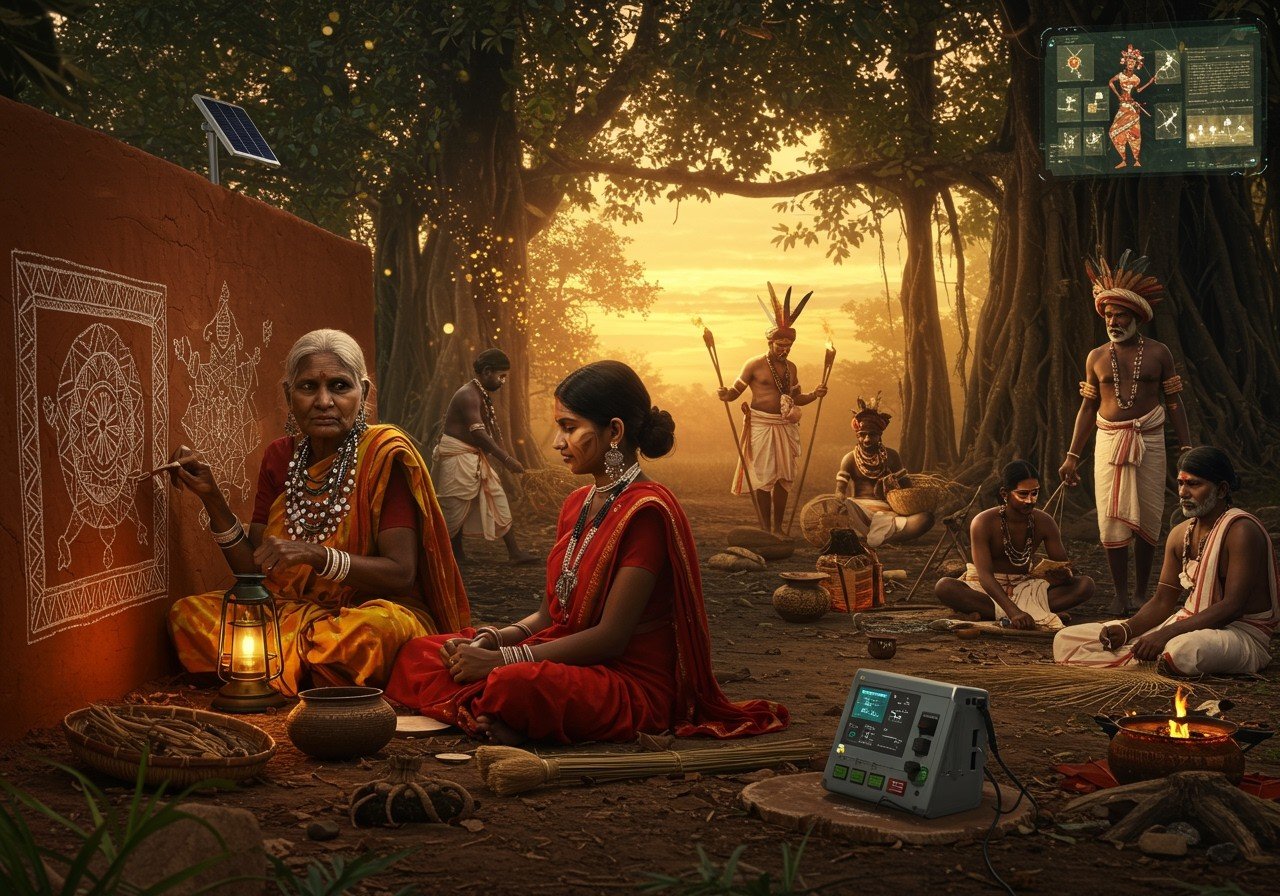
Understanding the value of preserving indigenous cultures is crucial in 2025. These cultures, representing unique traditions and global diversity, face numerous threats from globalization, environmental shifts, and socio-political issues. Protecting these traditions is essential for maintaining identity in our rapidly changing world. This guide delves into the challenges and solutions for preserving these invaluable cultures.
Threats to Indigenous Cultures
Indigenous communities face various challenges in preserving their cultural heritage. Globalization often leads to cultural homogenization, threatening the loss of unique indigenous identities. Environmental changes, such as deforestation and climate change, disrupt traditional ways of life and endanger natural habitats. Socio-political factors, including land disputes and assimilation policies, further jeopardize these cultures. The transmission of traditional knowledge and languages across generations is also at risk due to modernization. Furthermore, economic pressures often compel indigenous peoples to abandon their traditional practices for survival.
Efforts to Protect and Preserve Indigenous Heritage
Preserving indigenous cultures is akin to safeguarding a precious heirloom. Numerous global and local initiatives are underway to protect these rich heritages. Governments play a vital role by recognizing indigenous rights through land ownership and cultural heritage laws, aiming to empower indigenous communities with control over their cultural expressions and resources. Community-led efforts are equally crucial, with tribes actively revitalizing traditional crafts, dances, and rituals. This not only sustains traditions but also strengthens community bonds. Educating younger generations about their heritage is essential, and programs documenting languages and oral traditions facilitate the intergenerational flow of knowledge.
Collaboration is key. NGOs, academic institutions, and indigenous communities are partnering to develop sustainable projects that respect cultural values. Technology offers innovative ways to share indigenous knowledge, with digital archiving and virtual reality bringing indigenous stories to a global audience. Heritage tourism presents a valuable opportunity to raise cultural awareness and boost economic development, especially when communities lead these initiatives, fostering respectful exchanges of knowledge and tradition. Poojn.in supports these initiatives by providing authentic products used in rituals and ceremonies. Explore our collections of Shiva Lingams and Brass Trishuls to enhance your spiritual practices.
The Role of Organizations and Individuals in Cultural Preservation
Organizations play a significant role in preserving indigenous cultures. UNESCO recognizes and protects intangible cultural heritage, while local NGOs advocate for indigenous rights and provide resources for cultural projects. Academic institutions contribute through research and documentation. Individuals can also make a substantial difference. Supporting fair-trade products helps sustain indigenous economies, and participating in cultural exchange programs fosters understanding and respect. Social media serves as a powerful tool for raising awareness, connecting people worldwide, and promoting cultural exchange and appreciation. By engaging respectfully with indigenous communities, individuals can support initiatives that celebrate and preserve these rich heritages.
Key Strategies for Indigenous Cultural Preservation
- Language Preservation: Initiatives like documentation projects, educational programs for young community members, and the use of technology for digital archives and learning apps are vital. Supporting the use of traditional languages in education, arts, and media is essential for their survival and continued relevance.
- Preservation of Cultural Practices: Protecting sacred sites, supporting cultural festivals, and facilitating the transmission of artistic skills from one generation to the next are crucial. These practices ensure the continuity of cultural heritage and strengthen community bonds.
- Traditional Ecological Knowledge (TEK): Recognizing and maintaining TEK is crucial. This knowledge reflects centuries of indigenous peoples’ wisdom and practices in their interactions with the environment, providing valuable insights for sustainable living. TEK offers valuable lessons for environmental stewardship and sustainable practices. By supporting indigenous communities in maintaining their TEK, we contribute to a healthier planet.
- Cultural Centers and Museums: These venues serve as spaces for cultural activities, exhibitions, and educational programs that promote awareness and understanding of indigenous cultures. They provide platforms for sharing stories, preserving artifacts, and engaging with the wider community.
- Art and Collaboration: Supporting indigenous artists and artisans through exhibitions, cultural festivals, and collaborative projects amplifies indigenous voices and promotes cross-cultural understanding. Partnerships with museums, universities, and NGOs create platforms for indigenous communities to be heard and involved in decision-making processes. This collaborative approach ensures that indigenous perspectives are valued and integrated into broader cultural narratives.
- Education and Awareness: Educating people about the threats to indigenous cultural knowledge and the importance of safeguarding it is essential for creating a more inclusive and respectful society. This includes teaching respect for indigenous traditions, promoting ethical tourism practices, and advocating for policy reforms that protect indigenous rights. Increased awareness empowers individuals to make informed choices that support indigenous cultures.
- Legal Frameworks and Policies: Establishing legal frameworks and policies that recognize and uphold indigenous rights to their cultural expressions is fundamental. National laws for the protection of indigenous peoples’ heritage should be adopted following consultations with the peoples concerned. Strong legal protections are vital for safeguarding indigenous cultural heritage from exploitation and appropriation. Poojn.in believes in supporting these legal frameworks by offering traditional clay pots and other ritual items that are integral to indigenous practices.
- Control Over Cultural Transmission: Indigenous peoples must control their own means of cultural transmission and education to protect their heritage effectively. Governments should provide financial and institutional support for community-managed education programs that utilize traditional pedagogy and languages. Empowering communities to manage their own cultural transmission ensures the authenticity and continuity of their traditions.
- Food Preservation: Traditional food preservation methods, such as drying, smoking, and fermenting, are essential for maintaining food security and preserving indigenous culinary heritage. These techniques often hold cultural significance and contribute to the overall well-being of indigenous communities. At Poojn.in, we offer a variety of clay pots suitable for traditional cooking and food preservation, helping to support these vital practices.
- Environmental Protection: Recognizing the interconnectedness between indigenous cultural heritage and environmental protection is paramount. Revitalizing indigenous environmental laws and practices is essential for maintaining both cultural and ecological integrity. Preserving the natural environment is essential for safeguarding the cultural practices and traditions that are deeply intertwined with the land.
Moving Forward: Embracing and Supporting Indigenous Heritage
Preserving indigenous cultures is not merely about preserving history; it is about honoring the present and shaping the future. We all have a role to play in this vital mission. By supporting indigenous initiatives, purchasing fair-trade products, and participating in cultural exchanges, we contribute to a world rich in diversity and understanding. Organizations, governments, and individuals must continue working together. By embracing technology and supporting community-led projects, we can ensure that indigenous stories and traditions thrive. Heritage tourism, when conducted respectfully, offers a way to share and celebrate these cultures. As we move forward, let us commit to protecting and celebrating the vibrant tapestry of indigenous heritage. By doing so, we not only preserve the past but also create a future where cultural richness is cherished and shared with generations to come.
Discover authentic and handcrafted items that celebrate indigenous traditions at Poojn.in. Our collection features a wide range of products, from traditional attire and ceremonial tools to home decor and spiritual artifacts. By supporting Poojn.in, you contribute to the preservation of indigenous artistry and cultural heritage.


